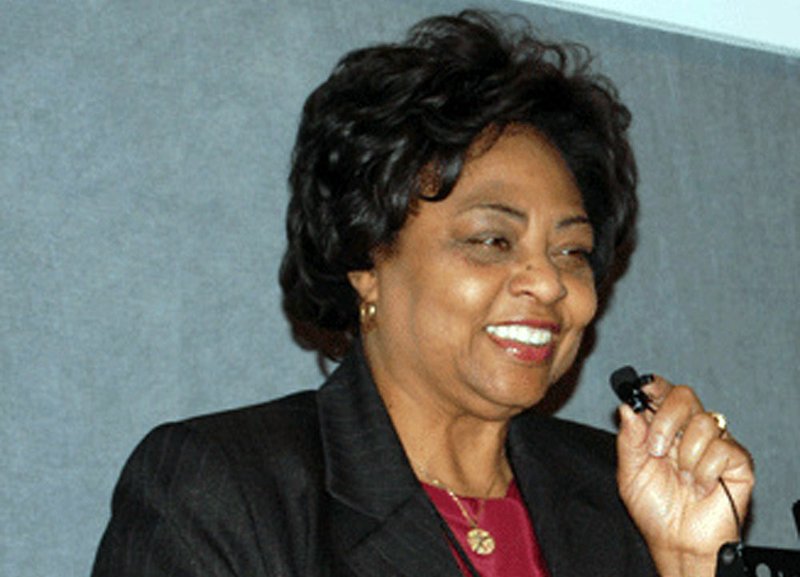WASHINGTON — The White House did a sudden about-face Wednesday and asked for forgiveness from the black Agriculture Department employee whose ouster ignited a political firestorm over race. She was offered a “unique” new position and said she was thinking it over.
The matter moved from Monday’s forced resignation of a minor U.S. Agriculture official in Georgia to Tuesday’s urgent discussions at the White House amid a rising public outcry and then to Wednesday’s repeated apologies and pleas for Shirley Sherrod to come back.
Sherrod said she resigned under White House pressure after the airing of a video of remarks she made at an NAACP gathering. But Agriculture Secretary Tom Vilsack said repeatedly Wednesday that the decision had been his alone.
“I asked for Shirley’s forgiveness, and she was gracious enough to extend it to me,” he said after reaching her by telephone.
Sherrod, in a phone interview, said, “They did make an offer. I just told him I need to think about it.”
President Barack Obama said nothing publicly about the developments while administration officials tried to simultaneously show his concern and to distance him from the original ousting.
It all began with the airing of a video on a conservative website of Sherrod’s remarks about not doing all she could to help a white farmer two decades ago. After she was told to resign, with the NAACP declaring its approval, the situation grew more complicated when the rest of the edited video was released by the NAACP and Sherrod insisted her remarks were about reconciliation, not the stoking of racism.
By Wednesday afternoon,White House press secretary Robert Gibbs was apologizing to Sherrod “for the entire administration” and saying that officials did not know all the facts when she was fired. He said he didn’t know if the president would talk to Sherrod himself.
The president had been briefed, Gibbs said, and “he talked about the fact that a disservice had been done, an injustice had happened and, because the facts had changed, a review of the decision based on those facts should be taken.”
Vilsack, who met with the Congressional Black Caucus after his news conference, said, “This is a good woman. She’s been put through hell. ... I could have done and should have done a better job.”
“I accept the apology,” Sherrod said on CNN after watching Gibbs talk to reporters on television.
But she said the apology took too long.
Sherrod was asked to resign after conservative bloggers posted a video of her saying she didn’t initially give a white farmer as much help as she could have 24 years ago, when she was working for a farmers’ aid group. Sherrod said she used the story in her speech to the NAACP to promote racial reconciliation and that the edited video distorted her remarks.
Like the administration, the NAACP reversed its stance on Sherrod and called for her to be rehired.
The Rev. Jesse Jackson called on the administration to apologize and give Sherrod her job back. The Congressional Black Caucus, with 42 members of Congress, called for Sherrod to be reinstated immediately.
However, the Rev. AlSharpton said black leaders should refrain from calling for an apology from the Obama administration, saying that creates the impression that black leadership is fractured. “We are only greasing the rails for the right wing to run a train through our ambitions and goals for having civil and human rights in this country,” Sharpton said.
The episode comes as the NAACP and the conservative Tea Party group have been trading charges of racism.
The two-minute, 38-second clip posted Monday by BigGovernment.com was presented as evidence that the NAACP was hypocritical in its recent resolution condemning what it calls racist elements of the Tea Party.The website’s owner, Andrew Breitbart, said the video shows the civil-rights group condoning the same kind of racism it says it wants to erase. BigGovernment.com gained notice last year after airing video of workers at the community group ACORN counseling actors posing as a prostitute and her pimp.
In the clip posted on Big-Government.com, Sherrod described the first time a white farmer came to her for help. It was 1986, and she worked for a nonprofit rural farm aid group. She said the farmer came in acting “superior” to her and she debated how much help to give him.
“I was struggling with the fact that so many black people had lost their farmland, and here I was faced with helping a white person save their land,” Sherrod said.
Initially, she said, “I didn’t give him the full force of what I could do” and only gave him enough help to keep his case progressing. Eventually, she said, his situation “opened my eyes” that whites were struggling just like blacks, and helping farmers wasn’t so much about race but was “about the poor versus those who have.”
People who knew Sherrod were quick to defend her, including the wife of the white farmer whom she discussed in the speech.
“We probably wouldn’t have [our farm] today if it hadn’t been for her leading us in the right direction,” said Eloise Spooner of Iron City, Ga.
“I wish she could get her job back because she was good to us, I tell you.”
Front Section, Pages 2 on 07/22/2010
